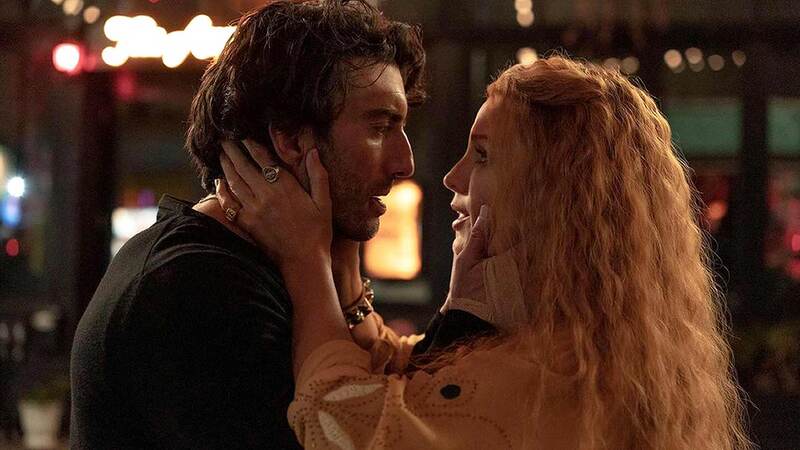You are viewing your 1 free article this month. Login to read more articles.
A matter of taste
Agenting is a careful balance between being confident in what you like and recognising there are audiences different to you.
It’s a Saturday and we are watching The Gruffalo’s Child…again. My daughter’s favourite part sees The Gruffalo’s Child fall through an icy lake as Snake looks on, first in hope and then in disappointment when she survives. My child literally jumps for joy and squeals with excitement as the dramatic music builds and swells – cheering not for the protagonist’s survival, but for Snake. Not particularly joyful or light, but you wouldn’t know that from my daughter’s reaction. Maybe it’s me, and the adult lens through which I watch the adaptation. Or maybe it is because she finds joy and delight in the dark and twisted, and I have a budding horror fan on my hands.
As watching her discover the world often does, this makes me reflect. I start to think more deeply about what makes me happy. A mix of things: cleantok, complex psychological thrillers, predictably satisfying murder mysteries where the butler did it, quiet libraries, loud cocktail bars, puzzles, driving on the motorway, horseback riding, innovative memoirs and cheesy Netflix romcoms. These might not strike everyone as particularly joyful pursuits and some of them directly contradict each other. That’s the thing about taste, it is completely subjective. To butcher an already popular phrase: what sparks joy will be different for everyone.
It is what made me fall in love with being an agent. The fact that my list is based on my idea of what makes a good story or what ideas would make a good book. There are other elements of being an agent that I love of course: the warm, tingly excitement that fills me when I sign someone I really want to work with, and then the fireworks going off in the background of the call where I tell them they have a publisher who wants to turn their ideas into a book. These are the things which keep me in love with being an agent through the rejections, the difficult conversations and the endless invoice-chasing, along with the knowledge that my idea of joy, my eye for what makes a good story, or a good book is unique to me. And I trust that uniqueness, appreciate it and try to celebrate it where I can.
Agenting is so much about finding voices which speak to you, but it is also (and in my opinion more crucially) about recognising the merit and import of the voices that can speak to audiences outside of you
A lot of the advice that I received as a budding agent was to carve out your own niche. It’s so hard to make that leap from assistant to agent – a problem which is symptomatic of the way our industry can exclude those without a certain level of security afforded to them. Our whole industry is based on risk, and the mitigation of it, so if you don’t carve out and justify your own space as an agent then it is really difficult to convince someone to take that risk on you and the books you represent. This is where I first learned how to combine the subjective nature of reading with the objective, critical eye which is necessary to do my job. As a Black woman in this industry, I am ever conscious of the “not quite connecting with the voice” rejection, as it is something which doesn’t often consider the fact that some stories aren’t meant to be easily digestible for everyone, and even the ones that are sometimes unintentionally exclude. I had to teach myself from a young age how to separate the relatability of a character from the strength of story and writing. Being able to ask myself whether the reason I dislike the book is because it wasn’t for me or if it was “bad” is an important skill.
Agenting is so much about finding voices which speak to you, but it is also (and in my opinion more crucially) about recognising the merit and import of the voices that can speak to audiences outside of you. Of course my experience of growing up, of life now and my interests influence my taste, but as I continue to build my list I keep my friends and family in mind. Friends of mine who read one book a year, family members who only buy books which will help them, and the experiences outside of my own which would make excellent books.
This is not to say I will sign every and anything, I often have to turn things down which sound like great ideas or contain amazing writing because I’m just not the right champion for them, but I’m certain another agent will be. Agents should be discerning and confident in their tastes – trust me authors, you want one who is – and it is that balance of subjectivity and objectivity, combined with the awareness of the market which informs that ultimate decision. Being sure of what brings you and others joy, so that you can stir those emotions up in others when submitting and pitching work on an author’s behalf is key.
There is the temptation when you are starting out to emulate what you have seen be successful before, to try and recreate the path of others in the hopes that following in their footsteps will be a sure-fire way to build a profitable list. However, if we all sign, sell and buy the same books then we run the risk of continuing to make and platform books for the same people, by the same people. Being able to maintain this model of publishing relies on subjectivity – the ability for authors, agents and publishers to be subjective about the stories they want to tell but objective in their outlook.
It’s Saturday again. It took me a week to get my thoughts down onto the page in a somewhat coherent piece, and in that time my daughter has moved on to Stick Man, which is possibly the saddest story ever. I ask her why this one, again, and ask if we can watch something happier. She says to me, with astonishing clarity for someone who is not even two yet: “Like it Mummy. Happy. More Stick Man.” The simplicity of this strikes me, reminds me of the innocent joy of discovering something you love. I decide to indulge her one more time, even if I need to have a box of Kleenex nearby.















